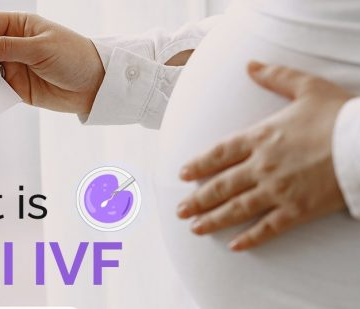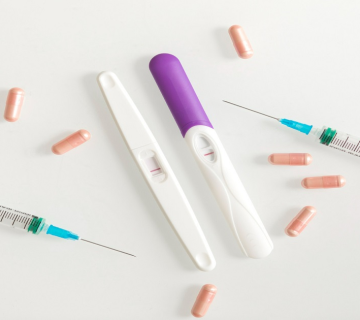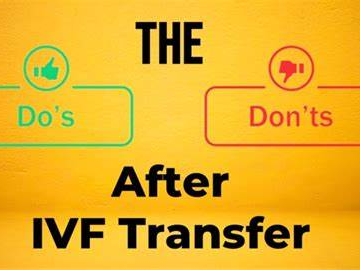
Is Blood Common After IVF After 10 Days?
If you’ve just gone through an IVF (in vitro fertilization) cycle, you’re probably feeling a mix of excitement, hope, and maybe a little worry. One big question that pops up for many people around 10 days after embryo transfer is: “Why am I seeing blood? Is this normal?” It’s totally understandable to feel confused or even scared when you notice spotting or bleeding during this time. After all, you’ve invested so much—emotionally, physically, and financially—into this journey. So, let’s dive in and figure out what’s going on when you see blood 10 days after IVF, whether it’s common, and what you should do about it.
In this article, we’ll break down everything you need to know in a way that’s easy to follow. We’ll look at why bleeding happens, what science says about it, and how to tell if it’s a good sign, a normal side effect, or something to call your doctor about. Plus, we’ll sprinkle in some fresh insights—like how your diet might play a role and what the latest research says—that you won’t find in most other articles. Ready? Let’s get started.
What Happens 10 Days After IVF Embryo Transfer?
Ten days after your embryo transfer is a big moment. It’s usually when you’re told to take a pregnancy test (often a blood test called a beta hCG test) to see if the embryo has implanted and you’re pregnant. At this point, your body’s been through a lot—hormone injections, egg retrieval, and the transfer itself. So, it’s no surprise that things might feel a little off.
Around day 10, the embryo (if it’s implanting) is burrowing into the lining of your uterus. This process can cause some changes—like tiny blood vessels breaking—which might lead to light spotting. But that’s not the only reason you might see blood. Hormones, medications, and even your body adjusting after the procedure can all play a part. Let’s explore the main causes next.
Why Might You See Blood 10 Days After IVF?
Spotting or bleeding 10 days after IVF isn’t super rare, but it’s not something every person experiences either. Studies suggest that anywhere from 7% to 42% of IVF patients notice some kind of bleeding during the “two-week wait” (the time between embryo transfer and your pregnancy test). Here’s why it might happen:
Implantation Bleeding: A Hopeful Sign?
One of the most talked-about reasons for bleeding around day 10 is implantation bleeding. This happens when the embryo attaches to the uterine lining, sometimes breaking small blood vessels. It’s usually light—think pink or brown spotting rather than bright red flow—and lasts just a day or two.
- What it looks like: A few drops on your underwear or when you wipe, often brownish or pale pink.
- When it happens: Typically 6-12 days after embryo transfer, so day 10 fits right in.
- Science says: A 2019 study in Fertility and Sterility found that about 1 in 3 women who had implantation bleeding after IVF went on to have a successful pregnancy. That’s encouraging, right?
But here’s the catch: not all spotting is implantation bleeding, and not every successful pregnancy comes with spotting. So, it’s a clue, not a guarantee.
Hormones and Medications: The Usual Suspects
During IVF, you’re taking meds like progesterone (often as pills, shots, or suppositories) to help your uterus support a pregnancy. These can mess with your body in ways that lead to spotting.
- Progesterone’s role: It thickens your uterine lining, but it can also make your cervix more sensitive, leading to light bleeding.
- Estrogen effects: Some IVF cycles use estrogen too, which can cause breakthrough bleeding (like a mini period) as your body adjusts.
- Real-life example: Sarah, a 32-year-old IVF patient, noticed spotting on day 11 and panicked—until her doctor explained it was likely her progesterone suppositories irritating her cervix. She tested positive two days later!
Your Period Starting Early: The Tough News
If the embryo doesn’t implant, your hormone levels might drop, triggering your period a bit earlier than expected—sometimes around day 10 or 11. This bleeding is usually heavier and comes with cramps, unlike implantation spotting.
- What to watch for: Bright red blood, clots, or a flow that gets stronger over time.
- Why it happens: If the embryo didn’t stick, your body stops producing pregnancy hormones, and the uterine lining sheds.
Less Common Causes (But Worth Knowing)
- Cervical irritation: The embryo transfer procedure involves a catheter, which can annoy your cervix and cause spotting days later.
- Subchorionic hematoma: A small blood clot near the embryo. It’s rare this early, but it can cause bleeding and still lead to a healthy pregnancy.
- Ectopic pregnancy: When the embryo implants outside the uterus (like in a fallopian tube). This is serious but uncommon, affecting about 1-2% of IVF pregnancies.
Is Bleeding 10 Days After IVF Normal?
Here’s the million-dollar question: Is it common or not? The short answer is yes, it can be—depending on what’s causing it. Let’s break it down with some numbers and insights:
- How often it happens: Research from the Journal of Assisted Reproduction and Genetics (2021) shows that up to 42% of IVF patients report spotting during the two-week wait. So, you’re not alone if you’re seeing it!
- Good news vs. bad news: A 2023 study found that light spotting around day 10 was linked to a 60% chance of a positive pregnancy test—higher than in cycles with no bleeding. But heavier bleeding often signaled a failed cycle or early miscarriage.
- What’s “normal”: Light spotting that stops quickly is usually no big deal. Heavy bleeding with pain? That’s when you need to worry.
Quick Quiz: What’s Your Bleeding Like?
Take a sec to think about what you’re seeing. Answer these questions:
- Is it light (a few drops) or heavy (like a period)?
- What color is it—pink, brown, or bright red?
- Are you having cramps or pain with it?
- Did it start suddenly or build up slowly?
Write down your answers and compare them to the sections below. It’ll help you figure out what’s going on!
Good Signs vs. Warning Signs
Spotting can feel like a rollercoaster—one minute you’re hopeful, the next you’re terrified. Let’s sort out when it’s a positive sign and when it’s time to call your doctor.
Bleeding That Might Be a Good Thing
✔️ Light and short-lived: A little pink or brown spotting that stops after a day or two could be implantation bleeding.
✔️ No pain: If it’s just spotting without cramps, that’s a plus.
✔️ Timing fits: Day 10 is smack in the implantation window (6-12 days post-transfer).
- Tip: Keep track of how much and how long it lasts. A journal or even a quick note on your phone can help you stay calm and informed.
Bleeding That Needs Attention
❌ Heavy flow: If you’re soaking a pad or seeing clots, it might mean the cycle didn’t work or there’s a problem.
❌ Severe cramps: Pain that’s more than mild discomfort could signal an ectopic pregnancy or miscarriage.
❌ Bright red and ongoing: Fresh blood that doesn’t slow down isn’t typical for implantation.
- Action step: Call your clinic right away if you’re worried. Better safe than sorry!
A Handy Chart to Compare
| Type of Bleeding | What It Looks Like | Likely Cause | What to Do |
|---|---|---|---|
| Light spotting (pink/brown) | A few drops, stops soon | Implantation or hormones | Relax, monitor it |
| Heavy bleeding (red) | Soaks a pad, clots | Period or miscarriage | Call your doctor |
| Spotting with pain | Light but with bad cramps | Possible ectopic pregnancy | Get help ASAP |
What Does the Latest Research Say?
Most articles stick to the basics, but let’s dig into some newer findings that shed light on bleeding after IVF. These insights come from studies published in 2023 and 2024—fresh info you won’t find everywhere else.
- Implantation timing: A 2023 study in Human Reproduction found that embryos implanting later (around day 9-11) were more likely to cause spotting than earlier ones (day 6-8). So, day 10 bleeding might just mean your embryo took its time settling in.
- Progesterone levels: Research from Reproductive Medicine (2024) showed that low progesterone levels around day 10 were linked to heavier bleeding and lower pregnancy rates. If you’re spotting a lot, your doctor might check your levels.
- Diet connection: Okay, this one’s new! A small 2024 pilot study suggested that women with higher inflammation (from diets heavy in processed foods) had more spotting during the two-week wait. Could cutting sugar or junk food help? It’s worth a try, and we’ll explore this more later.
What Should You Do If You See Blood?
Seeing blood can send your mind racing, but don’t panic just yet. Here’s a step-by-step guide to handle it like a pro:
Step 1: Assess the Situation
- Check the amount: Is it a few drops or a steady flow?
- Note the color: Brown or pink is less concerning than bright red.
- Feel your body: Any cramps, dizziness, or fever?
Step 2: Stay Calm and Rest
- Lie down for 20-30 minutes and take slow, deep breaths. Stress won’t help, and rest might slow light spotting.
- Avoid heavy lifting or exercise until you know what’s up.
Step 3: Call Your Clinic
- If it’s light and painless, call during office hours to check in.
- If it’s heavy, painful, or you’re freaked out, call ASAP—most clinics have a 24/7 line for this reason.
Step 4: Follow Your Doctor’s Advice
- They might ask for a blood test to check hCG or progesterone levels.
- An ultrasound could be next if they need to see what’s happening inside.
- Pro tip: Keep your clinic’s number saved in your phone. You don’t want to be scrambling for it in a panic!
3 Things Other Articles Miss (Unique Insights!)
Most blogs cover the basics—implantation, hormones, when to call the doctor. But here are three angles that don’t get enough attention, with practical tips to boot.
1. The Diet-Bleeding Link
We mentioned that 2024 study about inflammation and spotting. While it’s early research, it makes sense—your body’s already working overtime during IVF. Eating anti-inflammatory foods might reduce irritation and spotting.
- Try this: For the two-week wait, swap processed snacks for:
- Fresh fruit (berries are great!)
- Nuts like almonds or walnuts
- Veggies like spinach or broccoli
- Avoid: Sugary sodas, fried foods, or too much caffeine.
- Why it matters: Less inflammation could mean a happier uterus—and maybe less bleeding. Plus, it’s a healthy habit anyway!
2. Emotional Impact of Spotting
Seeing blood can mess with your head, especially after IVF’s rollercoaster. A 2023 survey of 500 IVF patients found that 68% felt “significant anxiety” after spotting, even when it turned out fine. Yet, most articles skip this part.
- Coping tips:
- Talk to someone: A partner, friend, or even an online IVF group.
- Distract yourself: Watch a funny movie or bake something simple.
- Breathe: Try 4-7-8 breathing (inhale 4 seconds, hold 7, exhale 8).
- Interactive idea: What’s your go-to stress buster? Vote below!
- A) Netflix binge
- B) A walk outside
- C) Chatting with a friend
- D) Other (tell us in your head!)
3. Late Implantation and Success Rates
That 2023 Human Reproduction study hinted that later implantation (day 9-11) might actually have a silver lining. Embryos that take longer to implant still have a solid shot at success—sometimes even higher than early ones, because they’ve had more time to develop.
- What this means: If you’re spotting on day 10 and test positive later, don’t assume it’s “less healthy.” It might just be a late bloomer!
- Tip: Ask your doctor about your embryo’s stage (e.g., day 3 or day 5 transfer) to get a sense of its timeline.
How to Track Bleeding (and Stay Sane)
Keeping tabs on what’s happening can help you feel in control. Here’s a simple way to do it:
Daily Tracking Checklist
Grab a notebook or your phone and jot down: ✔️ Date and time the bleeding started
✔️ Color (pink, brown, red)
✔️ Amount (drops, light flow, heavy)
✔️ Any cramps or other symptoms
✔️ What you were doing before it started (resting, walking, etc.)
Example Log
- Day 10, 2 PM: Light pink spotting, 3 drops, no pain, was napping.
- Day 11, 9 AM: Brownish, barely there, mild cramp, after breakfast.
This log can be a lifesaver when you talk to your doctor—they’ll love the details!
Real Stories: What Others Experienced
Sometimes, hearing from people who’ve been there helps more than stats. Here are two quick stories (names changed for privacy):
- Jenny, 29: “I saw light pink spotting on day 10 and freaked out. My clinic said to wait for my test on day 12. It was positive—I’m now 20 weeks pregnant!”
- Lisa, 35: “I had heavy red bleeding on day 11 with cramps. I called my doctor, and sadly, it was my period starting. But they adjusted my meds, and my next cycle worked.”
Every story’s different, but they show how varied this can be—and that there’s hope even after a scare.
FAQs: Your Top Questions Answered
You’ve got questions, and we’ve got answers. These are the ones people search for most, plus a few extras:
Is spotting on day 10 after IVF a sign of pregnancy?
It could be implantation bleeding, especially if it’s light and short. But it’s not a sure thing—wait for your hCG test to know.
How much bleeding is too much?
If you’re soaking a pad in an hour or passing big clots, that’s too much. Call your clinic right away.
Can stress cause bleeding after IVF?
No solid proof links stress to bleeding, but it can make you feel worse about it. Try to relax—easier said than done, we know!
What if I bleed after a positive test?
Light spotting can still happen in early pregnancy (like from a hematoma). Heavy bleeding might mean a miscarriage—check with your doctor.
Final Thoughts: You’ve Got This
Seeing blood 10 days after IVF can feel like a curveball, but it’s not always bad news. Whether it’s implantation, hormones, or something else, you’re not alone—tons of people go through this and still get their happy ending. The key is to stay calm, track what’s happening, and lean on your clinic for guidance. Plus, little tweaks like eating better or managing stress might give you an edge (and some peace of mind).
So, take a deep breath, keep your phone handy for that doctor call if you need it, and hang in there. You’re tougher than you think, and this journey’s worth it. What’s your next step—waiting for your test or chatting with your doc? Either way, you’re on your way.



